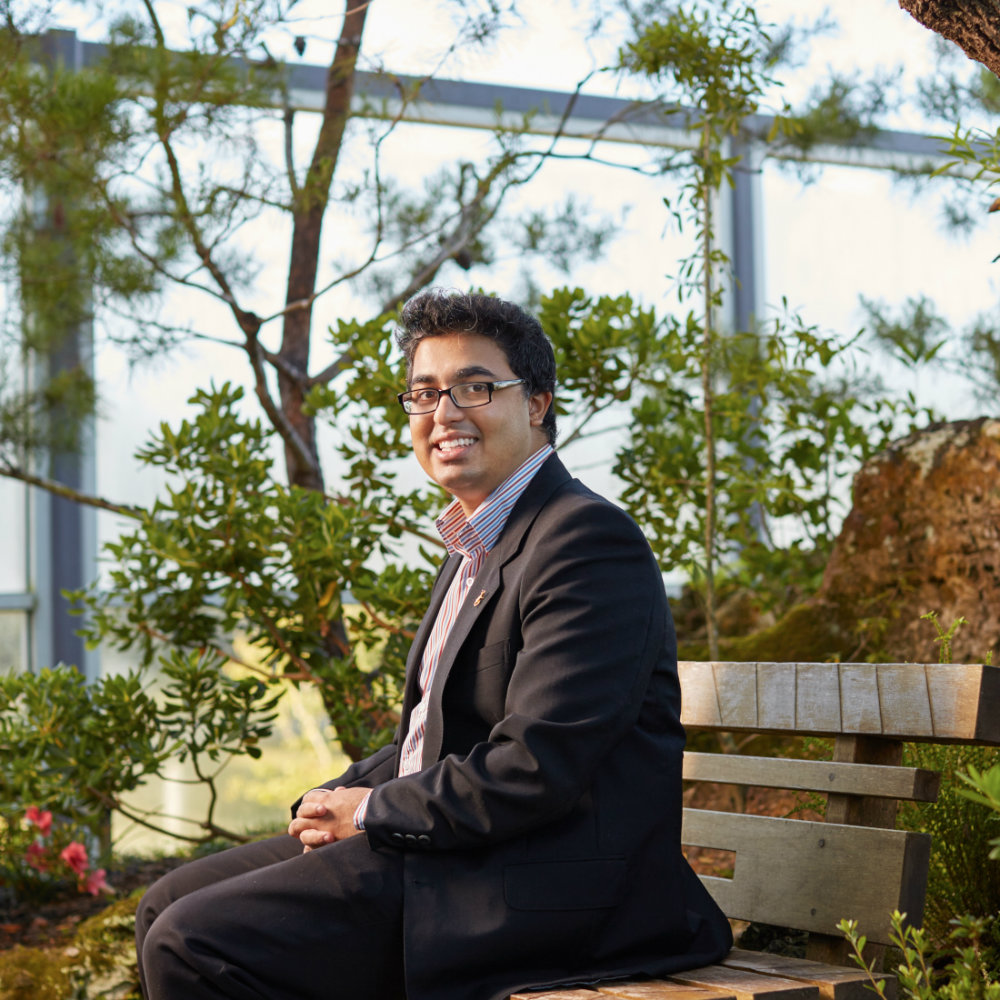
UF student Narayan Kulkarni, a fourth-year biology/pre-med major, has been named the first-place winner of the Tokyo-based Goi Peace Foundation’s 2015 International Essay Contest for Young People, co-organized by UNESCO. Narayan’s work was selected as the winner from among nearly 13,000 entries representing 148 countries. His essay, “Building Peace Begins from Within,” grew from his experience finding ways to cope with the way some people treated him after the Sept. 11, 2001, terrorist attacks.
“Building Peace Begins from Within”
By: Narayan Kulkarni
On September 11, 2001, two planes hijacked by al-Qaeda terrorists crashed into the World Trade Center, killing nearly 3,000 individuals and injuring over 6,000 more. That day, also called 9/11, left a stain in the hearts and minds of many Americans. It would impact much of my life, but I would use the opportunity to develop peace from within.
I had recently moved to Florida, transferring to a new elementary school. After 9/11, it was as if I had changed overnight from a new student to a loathed enemy. My peers called me names like “terrorist” and “bin Laden’s son,” excluded me from group games at recess, and avoided me during lunch and breaks. This practice continued years later, making me feel helpless and isolated. These feelings grew stronger as I was the only Indian and Hindu student at my school, with no relatable peers.
Throughout middle and high school, I turned to religion and academics as ways to avoid the unpleasant memories of elementary school. Unexpectedly, through this approach, I uncovered many tools to confront my past. Learning about karma within Hinduism, I gained awareness of life’s interconnectedness by understanding that good or bad actions would positively or negatively affect everyone. Mother Teresa’s work illustrated to me the power of compassion and use of one’s talents to selflessly serve the world. Through reading about Dr. Martin Luther King Jr., I discovered how his vision for racial equality and nonviolent activism led to legal reform in the U.S. Lastly, by practicing Sun salutations each morning, I realized that awareness of one’s body and breath leads to physical wellness and mental peace.
My college experience contrasted sharply with that of elementary school. I quickly found a community with those of similar backgrounds- not only of peers whose parents immigrated to the U.S., but also those who had similarly been ostracized after 9/11. Talking to these peers, I noticed that, although we had different identities, we shared one common connection: we had no avenue to voice our stories and struggles. Inspired by that insight, I coordinated a community-wide event that empowered my peers to share their stories as panelists, and brought together community leaders to remember the impacts of 9/11 in a candlelight vigil. It was the first time in the city’s history that a student organized a community event about 9/11 which allowed minorities of many different backgrounds to vocalize their seldom heard stories. The experience not only developed peace in my mind and heart, but allowed me to understand how it was built from within.
Actively listening to my peers’ stories, I became mindful, as in my yoga practice, of their words and thoughts. Relating them to my own experience, I recognized our intertwined destinies, as I did when learning about karma. I imagined, as Dr. King did, a better world, and, like Mother Teresa, I took the initiative to make a change. But ultimately, it started with becoming mindful and using my knowledge to benefit others.
This has significant implications for our world. I believe that many world issues originate from an individuals’ lack of mental and emotional peace. So, the individual, irrespective of background, must uncover the solution. By using tools such as inquiry and meditation, an individual will develop mindfulness. Being mindful, if individuals are exposed with experiences with those of different backgrounds, they recognize shared struggles, develop empathy, respect their differences, and realize the interconnectedness in the world. Feeling their common humanity, these individuals will reflect on their experiences, define their unique story, and responsibly use their knowledge with others for a good purpose. Everyone in this world has experienced a unique internal struggle, but the earlier that one discovers and utilizes the tools to overcome it, the easier it will be to create a peaceful world.
Having overcome my own struggle, I am now the president of one of my university’s largest student organizations. My story motivates me to help others develop internal peace through cultivating mindfulness, interconnection, compassion, and reflection. I have learned that building peace is a process which begins from within, and that it is our responsibility to develop it first in ourselves and then in others.